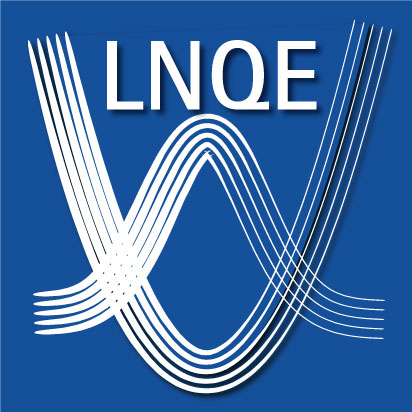The Lower Saxony Ministry of Science and Culture (MWK) has approved eleven new Lower Saxony PhD-programs, including the "Hanover School for Nanotechnology" with partners from the Research Center Laboratory of Nano and Quantum Engineering of the Leibniz Universität Hannover and from the Hochschule Hannover. Fifteen scholarships and funding for equipment and travel costs of the scholarship holders were granted, the total grant amounts to 1.000.000, - Euro for a period of four years.
Nanotechnology is one of the most promising key technologies that can help solve many of the problems of mankind. One of the key questions of our time is to cover here the ever-increasing demand for energy whiles the resources coming to an end and to protect the environment at once. The conversion, transport and storage of energy are fundamental issues for the future of our society. The field of nanotechnology can make here important contributions through improved fundamental understanding, through new applications and through marketable products. Energy processes need to be understood at the nanoscale. With nanomaterials and nanoengineering these processes will be improved and revolutionary new ways of energy conversion, energy storage and energy transport will be found.
Nanotechnology is a very interdisciplinary and it requires knowledge of chemistry, physics, electrical engineering and mechanical engineering. Nanotechnology oriented working groups of the Leibniz Universität Hannover have linked in the interdisciplinary research center Laboratory of Nano and Quantum Engineering (LNQE) since years. This network not only creates a basis for joint research activities, but is particularly committed to train a new generation of researchers, whose interdisciplinary expertise enables them for effective cross-disciplinary communication between the disciplines. Managed by the LNQE the bachelor's and master's program "Nanotechnology" is offered hence for several years. With the recently approved Hanover School for Nanotechnology (hsn) interdisciplinary training is consistently continued in the doctoral level.
The hsn is targeted at outstanding young students from around the world, in order to educate them the best possible way in the field of nanotechnology. An important goal is to achieve a short promotional period for international students while achieving excellent research results. The program has flexible entry points in time: immediately after the bachelor's degree, while the master time or with a master's degree, in order to admit excellent students at all levels.
Along with the actual subject of the PhD project, a tailored curriculum will be offered. This includes nanotechnology courses, seminars, colloquies, courses to promote personal skills, and in particular special events that teach the responsible use of nanotechnology. A particular focus of hsn is also to promote young female scientists, one the one hand hsn wants to win preferably many women, on the other hand hsn will supported and encourage them in a special way. For the best scholars, hsn offers after an evaluation a fast-track option, to which the funding with a scholarship will begin already during the master time. Then the master's degree is acquired and after two more years the doctorate is completed.
The hsn will find their spatial base in the newly constructed research building of the LNQE. This nanotechnology research building offers the newest laboratories and clean rooms for advanced research and the office space is ideally designed for communicative interaction, so that the PhD-students can be trained together "under one roof".
The hsn brings together partners from the LNQE and from the Hochschule Hannover (HsH). This makes it possible to give outstanding graduates of HsH access to doctoral studies. The supervision of doctoral students is taken jointly by partners from the Leibniz Universität Hannover and the Hochschule Hannover. The results of basic research obtained in LNQE are transferred by the partners from HsH into applications. In addition, the hsn has an excellent network of both regional and international partners. .
Note to Editors:
For more information, please contact Dr. Fritz Schulze Wischeler from the Laboratory of Nano and Quantum Engineering at telephone +49 511 762 16014 or by e-mail schulze-wischelerlnqe.uni-hannover.de.
See also:






